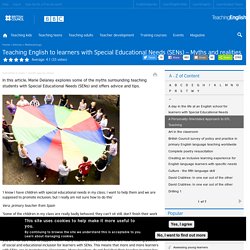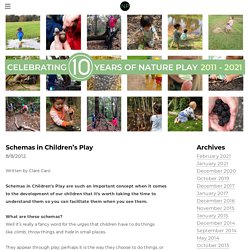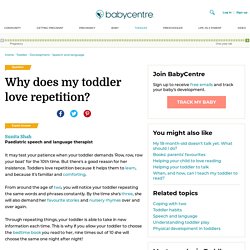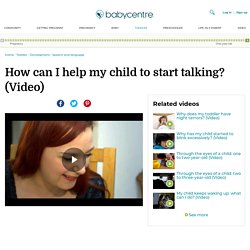

How can parents and teachers best educate young children? What principles can both teachers and parents bring to the education of very young children? Gillian Craig, who was part of the Learning Time with Shaun and Timmy writing team, explains. As teachers and parents, we follow certain principles in our roles. Often though, these principles overlap and all we need to do is recognise and reinforce these areas. Ask (the right) questions. Listening Skills for Staff. A longitudinal investigation of the role of quantity and quality of child-directed speech in vocabulary development.
Being Multilingual: You speak with an accent. I don’t. Accents are things that only other people have.

They are, by extension, things that you don’t want to have. Accents are, in short, shortcomings. This is why, if someone tells you that “you speak with no accent”, you can be sure of two things: that you have received words of praise indeed; and that you speak with the same accent as that person. Being Multilingual: The natives and the speakers.
Let me start with the good news.

We are, all of us without exception, native speakers. Inclusion Development Programme Behaviour Emotional Social Difficulties. B480 Special Need Publication A4 V5 Final MR. Neurodiversity TfS online conference. Teachingenglish.org. ‘I know I have children with special educational needs in my class, I want to help them and we are supposed to promote inclusion, but I really am not sure how to do this’ Vera, primary teacher from Spain.

Schemas in Children’s Play - N a t u r e P l a y. Written by Clare CaroSchemas in Children’s Play are such an important concept when it comes to the development of our children that it’s worth taking the time to understand them so you can facilitate them when you see them.What are these schemas?

Well it’s really a fancy word for the urges that children have to do things like climb, throw things and hide in small places. They appear through play; perhaps it is the way they choose to do things, or what they desperately need to do out of the blue! Bringing It All TogetherAfter looking at each schema individually to get to grips with what each 'urge' is all about we may already be able to recognise some of the different ways they can appear in your child.Rotation, Trajectory, Enveloping, Orientation, Positioning, Connection, Enclosure/Container, Transporting and Transformation are urges that show in all children starting as early as their first birthday, some times before.How Can Knowing About These Urges Help Us?
I Said I Want the Red Bowl! Responding to Toddlers' Irrational Behavior. Does my toddler have a short attention span because she won’t sit still for a story? A: It is perfectly normal for toddlers to not sit still very long—period.

Most don’t like to stay in one place for long now that they can explore in so many new ways—by running, jumping, and climbing. So, an adult’s idea of snuggling on the couch to hear a story may not be the same idea a toddler has for story-time. You may only be able to read or talk about a few pages in a book at a time. Las 5 mejores terrazas de Nueva York. La primera pregunta es obligatoria, ¿por qué decidiste dejar de lado a 'el Pescao'?

Para entenderlo hay que remontarse muy atrás. El primer cambio surge cuando acaba 'El Canto del Loco' y yo me planteo hacer algo que no involucre tanta exposición hacia fuera. Soy algo tímido, introvertido, así que de manera totalmente inconsciente me escudo tras 'el Pescao'. Pero poco a poco notaba como esta barrera se desintegraba y dentro de mí nacía la necesidad de mostrar lo que soy. Así que de repente dices: "Quiero cambiar" Es como una metamorfosis, pero rápida y que ha tenido algo de dolor porque me lo he pasado muy bien con ‘el Pescao’. ¿Cómo describirías a ese hombre tras el cambio? En realidad sigue siendo el mismo. ¿Cómo te gustaría que fuera esa biografía? Un chico de Madrid de 35 años, padre de familia, apasionado por la música, por trabajar. A esto añadiría que ahora soy una persona que se muestra frontal, tal y como es ante un proyecto artístico.
¿Este cambio se refleja en la música? Article. How do you speak 'Motherese'? Deb Roy: The birth of a word. Listen to Your Mother. Young children face a remarkable challenge in learning to use the language of their culture. Toddlers vary widely, however, in the rate at which they learn new words.1 A team of Harvard Graduate School of Education researchers set out to ask whether and how children's language environment can impact vocabulary development. In their study of mother-child pairs from low-income families, they found that mothers who used many different words (not just many words) had toddlers with faster growth in vocabulary use. During the toddler and preschool years, most children learn to use hundreds of words, combining them into sentences and engaging in conversation with others. From previous research, we know that variation in vocabulary growth relates to child characteristics like gender, and also to parental factors.
Let's Talk. What do babies need in order to learn and thrive? One thing they need is conversation — responsive, back-and-forth communication with their parents and caregivers. This interactive engagement is like food for their developing brains, nurturing language acquisition, early literacy, school readiness, and social and emotional well-being. A dispiriting number of children don’t get that kind of brain-fueling communication, research suggests. In early childhood policy (and in the wider media), much attention has been paid to the so-called word gap — findings that show that low-income children hear 30 million fewer words, on average, and have less than half the vocabulary of upper-income peers by age three. But putting that alarming number in the spotlight obscures a more critical component of the research, says Harvard Graduate School of Education literacy expert Meredith Rowe: it’s not so much the quantity of words but the quality of the talk that matters most to a child’s development.
Why does my toddler love repetition? - BabyCentre. Paediatric speech and language therapist It may test your patience when your toddler demands 'Row, row, row your boat' for the 10th time.

But there's a good reason for her insistence. How can I help my child to start talking? (Video) - BabyCentre. Health visitor Sara Patience describes how you can help develop your child's language skills by talking and playing with her.

Show transcript Hide transcript How can I help my child to start talking? Sara: “You want this one? Between 12 months and two-and-a-half years, there is a lot of language development, and you will hear your child start to use more and more words.